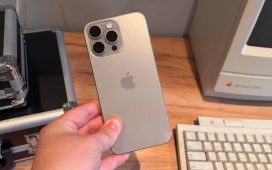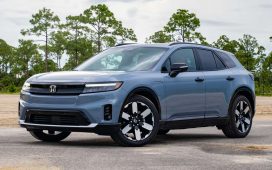Apple Inc. AAPL has terminated its self-driving vehicle testing permit in California. The decision follows the company’s earlier abandonment of its electric vehicle project.
What Happened: The California Department of Motor Vehicles (DMV) confirmed that Apple requested the cancellation on Sept. 25, with the permit officially ending on Sept. 27, according to macReports.
This move aligns with previous reports by Bloomberg’s Mark Gurman, indicating Apple’s retreat from the electric vehicle market after a decade-long effort.
Apple’s permit, granted in 2017, allowed the testing of autonomous vehicles with safety drivers on public roads. The permit was initially set to remain valid until April 2025.
The company had been utilizing leased Lexus SUVs, outfitted with sensors and cameras, to experiment with self-driving technology on California streets.
See Also: How To Make Calls Faster Using This iOS 18 Feature On Your iPhone
This cancellation marks a significant shift in Apple’s strategy, effectively closing the chapter on its autonomous vehicle ambitions.
The decision comes just days before Tesla Inc. TSLA unveiled its Robotaxi, highlighting the competitive landscape in autonomous vehicle development.
Why It Matters: Apple’s decision to end its self-driving car testing in California is a major development in the tech and automotive industries. The project, known as “Titan,” was initiated in 2014 with the ambition of revolutionizing the car industry.
Despite investing $1 billion annually, the project faced numerous challenges, including leadership indecision and technical hurdles, ultimately leading to its cancellation in February.
Meanwhile, Tesla Inc. TSLA is forging ahead with its autonomous vehicle ambitions. The company recently unveiled a two-seater robotaxi, the Cybercab.
Tesla CEO Elon Musk has expressed confidence in deploying full self-driving technology by 2025, although regulatory hurdles remain a significant challenge.
Check out more of Benzinga’s Future Of Mobility coverage by following this link.
Read Next:
Disclaimer: This content was partially produced with the help of AI tools and was reviewed and published by Benzinga editors.
Photos courtesy: Shutterstock and Flickr
Market News and Data brought to you by Benzinga APIs
© 2024 Benzinga.com. Benzinga does not provide investment advice. All rights reserved.










